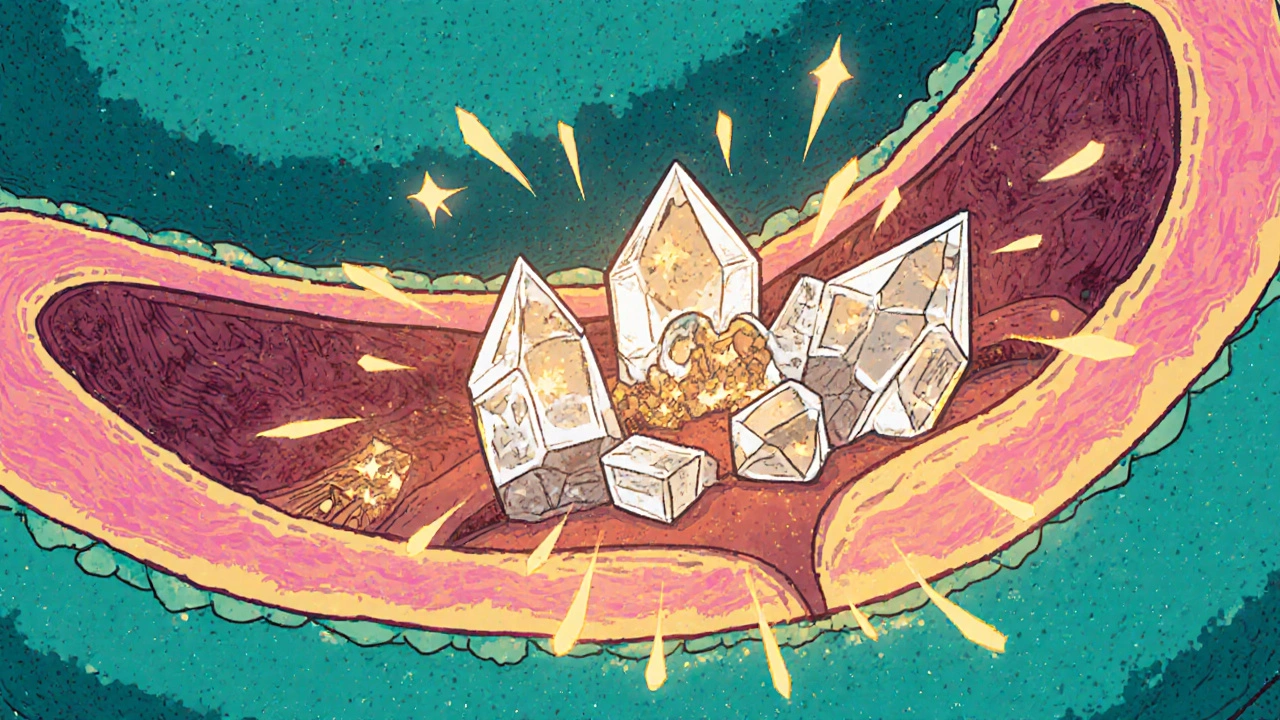Stone Prevention: How to Stop Kidney and Gallstones Before They Start
When it comes to stone prevention, the process of reducing the risk of forming kidney or gallstones through lifestyle and dietary choices. Also known as urolithiasis prevention, it’s not about waiting for pain to strike—it’s about making daily choices that keep your urinary and digestive systems running smoothly. Most people don’t realize how much control they have over whether they’ll ever deal with a kidney stone or gallstone. It’s not just bad luck. It’s often what you drink, what you eat, and how you move your body.
Kidney stones, hard deposits made of minerals and salts that form inside the kidneys. Also known as renal calculi, they’re often tied to low fluid intake, high sodium, and too much oxalate in the diet. Gallstones, solid particles that form in the gallbladder from bile components like cholesterol and bilirubin. Also known as biliary calculi, they’re more common if you’re overweight, eat a lot of fried food, or skip meals. Both types of stones share one big enemy: dehydration. If you’re not drinking enough water, your urine gets too concentrated. That’s when minerals clump together and start forming crystals. For gallstones, it’s the same story—bile thickens when you don’t eat regularly, and cholesterol hardens into stones.
There’s no magic pill for stone prevention. But there are clear, simple habits that work. Drink at least 2.5 liters of water a day—more if you’re active or in a hot climate. That’s about 10 glasses. Color of your urine? Pale yellow means you’re on track. Dark yellow? You need more water. Cut back on salt. Processed snacks, canned soups, and fast food are loaded with sodium, which makes your kidneys hold onto calcium, increasing stone risk. Skip sugary drinks. Studies show soda, especially colas, raises your odds of kidney stones. Swap them for water, lemonade, or herbal teas. Lemon juice is actually helpful—it contains citrate, which blocks stone formation.
For gallstones, focus on fiber. Beans, oats, fruits, and vegetables help your body process cholesterol better. Avoid crash diets or rapid weight loss—they throw your bile chemistry out of balance. Eat regular meals, even if you’re not hungry. Skipping meals lets bile sit too long in the gallbladder, turning into sludge and then stones. If you’re overweight, losing weight slowly—half a pound to a pound a week—lowers your risk without triggering problems.
Some people think supplements like calcium pills cause stones. That’s not true. In fact, getting calcium from food helps bind oxalate in the gut and stops it from reaching the kidneys. Dairy, leafy greens, and fortified plant milks are safe. Avoid high-dose vitamin C supplements—they can turn into oxalate in your body. And don’t overdo animal protein. Red meat, eggs, and shellfish increase uric acid, another stone-forming compound.
You won’t find a single cure-all, but you don’t need one. Stone prevention is about stacking small wins: drinking more water, eating more plants, cutting out processed junk, and moving your body. The posts below give you real-world details—how specific medications affect stone risk, what diets actually work, and how to spot early signs before it turns into an emergency. Whether you’ve had a stone before or just want to stay ahead of it, this collection gives you the tools to take control.

